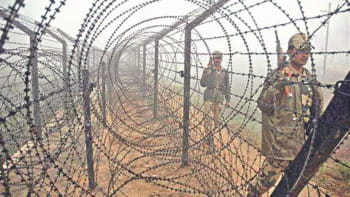'Slow' trouble

Banker Rafiqul Islam saw off his wife at Shahjalal International Airport and was still on his way back home to Dhanmondi when he got the call from Kolkata. I have arrived safely, his wife said. But Rafiqul was nowhere near his home.
A few weeks back, he had taken a bus ride to Chittagong for an official meeting. The journey seemed an endless ordeal as it took him about ten hours to cross those 286 kilometres.
Rafiqul's story sums up what Finance Minister AMA Muhith faces as his tasks in the budget that he would present today and in the years to come.
Bangladesh today is stuck in many ways. Its growth is stuck in the six percent band marked by low investment; its roads are stuck in the quagmire of traffic jams, its infrastructure in slow progressing works, its productivity in a low band, and its decisions are stuck in snailing bureaucracy.
In short, Bangladesh needs to break out from this inertia if it wants to cross the barrier to growth and development; but its non-economic factors are holding it down more than the economic intricacies.
Otherwise things look pretty comforting on papers. The country has accumulated a huge foreign exchange reserve, enough to support more than six months' import. Inflation has moderated to a single digit. Imports are increasing although exports have dipped. Yet investment is badly missing. And that makes one feel uneasy because unless the non-economic factors are fixed, private investment will remain uncertain.
Private investment has been stuck in the band of 22 percent over the last few years. To compensate for that, the government has increased its own share of investment so that GDP growth does not fall.
This has created a paradox. Increased public investment was supposed to bring in more private investment, which actually has not happened. Then we have to ask if public investment is yielding the kind of return that it is supposed to have and if these investments are having any impact? And if so, at what cost?
These are some crucial questions that the finance minister will have to address if he really wants to see a buoyant economy matching our neighbours'.
We have seen how the key big projects have bogged down, leading to cost escalation. Take, for example, the Padma Bridge. Its cost has spiralled by 40 percent or Tk 8,000 crore because of delay. Or consider the Dhaka-Chittagong highway widening project. Its cost has just doubled. We can list projects one after another that are dragging for months and years, giving benefits to no one except to the contractors. Any cost escalation is a waste of public money that dampens the economic return of a project. Just imagine how many more important new projects could be taken up only if we succeeded in ending these big projects on time.
The government needs to be careful while picking a project; its relevance and importance must be checked. This is because the global investible funds are looking for lucrative opportunities. They are looking for countries with good foreign exchange reserves, something that Bangladesh has right now, and so we are their target. Such behavior of global funds often leads to thrusting of low priority projects upon recipient countries. Wasteful projects thus get the government's nod.
Only strong political commitment and sound economic management policy can check prevalence of wasteful projects. Dependence on domestic resource to roll out new projects has also emerged as a financial danger as supervision becomes weak in absence of foreign monitoring.
The finance minister will also have to think about how to prop up the flagging exports. Taka has remained strong against dollar on the back of huge reserve for quite some time, putting obvious pressure on exports. He has to find out how to deal with the situation, especially with the option of floating sovereign fund.
And while tackling the present situation with infrastructure the finance head will also have to think of the future. Whatever modernisation we have embarked on, these have already become dated. For example, a four-lane Dhaka-Chittagong road is no longer adequate. There are roads, for example, the Dhaka-Sylhet or Jessore-Dhaka that need immediate expansion attention. We have to keep in mind the future regional connectivity. Or, flyovers in Dhaka city will not meet the future demand.
Talking about Dhaka city which now has two pro-active mayors, the finance minister can make a priority of allocating more and priority-based funds for the city corporations. He must know, despite being escorted by whistle-blowing police cars, how Dhaka city is beset by problems and how ugly and dirty it has become to be the worst city in the world. He should allocate more from the central budget to start improving the city.
But whatever the finance minister may innovate in his upcoming budget, everything will depend on the most important non-economic factor – political stability. It is difficult to see how investors will find confidence in making medium to long-term commitments to manufacturing, infrastructure, and services in a volatile political environment such as the kind currently prevailing in Bangladesh.
Who can say for sure that the kind of violence Bangladesh witnessed early this year will not repeat itself next year? Or the year after?


 For all latest news, follow The Daily Star's Google News channel.
For all latest news, follow The Daily Star's Google News channel. 



Comments